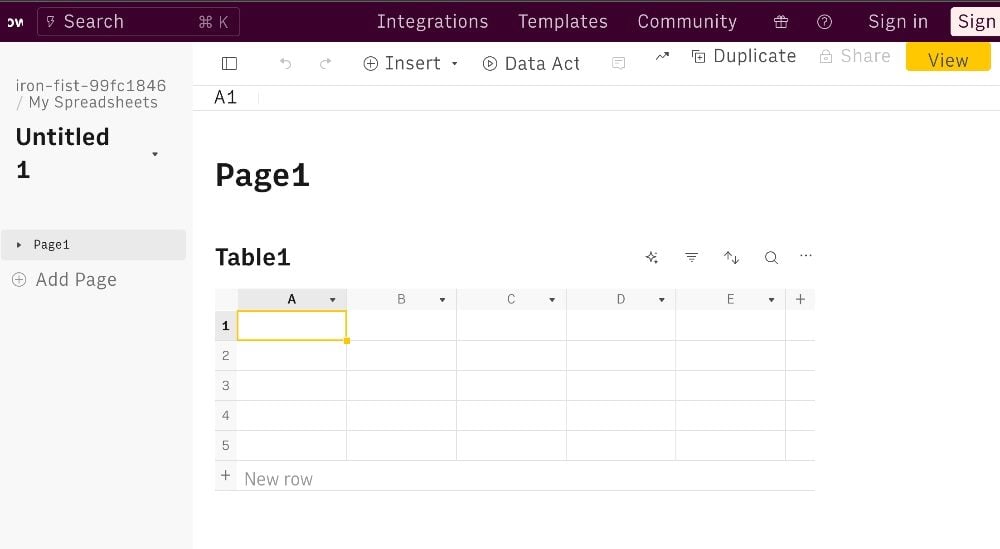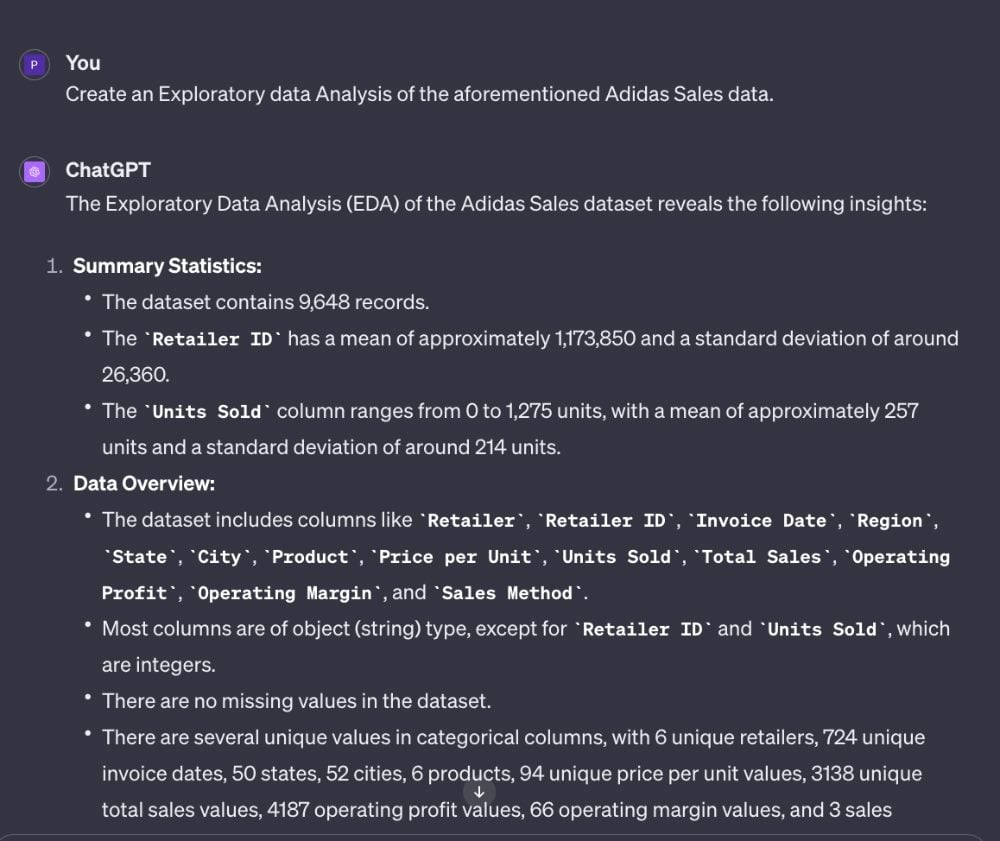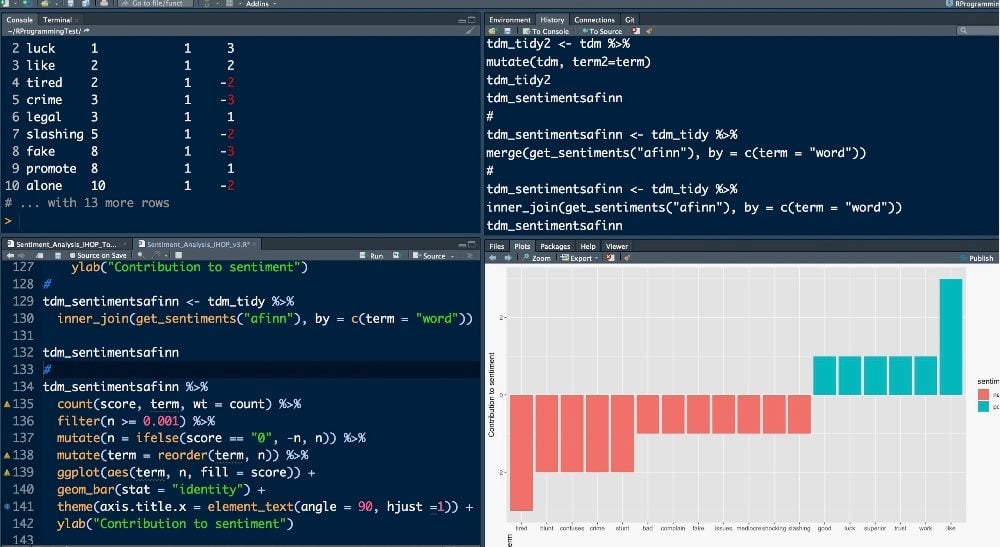Selecting the Right AI Tools for Marketing Success

The Gist
- Diverse assistance. A range of AI assistants and copilots are available to help marketers explore marketing analytics.
- Science integration. Many tools are designed for data science since advanced marketing analytics also relies on statistical modeling of data.
- Seamless interaction. AI provides a communication layer so that analysts can explore data without being bogged down by syntax.
With the rise of AI, marketers are facing a plethora of choices for AI marketing tools, particularly in data analysis.
AI has introduced a new user interface that employs a reasoning engine to connect data reports and structures. This revised workflow accelerates tasks for analysts and reveals key indicators to decision-makers who rely on regular analysis.
But marketers still face a fragmented martech marketplace where AI marketing tools seemingly overlap in features and capabilities. AI and analytics are being embedded into many solutions, with new iterations arriving at bullet-train speeds.
So how do marketers make a wise choice for the right solutions that will elevate their analysis game?
Examining one of the following 10 solutions is a great starting point. Each offers AI-based enhancements for data exploration, which can augment skills marketing teams already possess. Teams should compare and select the solution that leads to the best iteration of AI skills and analytic capability within their data stack. Let’s take a look at some of the most beneficial AI marketing tools.
Related Article: AI in Analytics: 3 Key Tips to Keep Your Workflow up to Date
10 Beneficial AI Marketing Tools
1. Metabase
Metabase is a self-service cloud analytics solution that offers users a quick dashboard setup against over 20 different database sources. It includes a visual query builder and segmentation settings to ensure users see visualizations most relevant to their work.
Metabase focuses on SQL in the cloud, and its AI assistance comes from a Chrome plugin called Avanty. Avanty enhances Metabase analysis with features like AI-generated edits on SQL queries, AI-generated explanations of complex SQL queries and auto-generated titles for new Metabase charts. The result is automatically debugged SQL queries that reduce errors.
Related Article: AI Marketing Tools 2024: When Hype Meets Reality
2. Rows
A newcomer to the AI standalone tool marketplace is Rows.

There’s an organizational benefit to seeing tables and visualizations together.
Another advantage is the ability to add and delete information without scripts, add-ons or code. Even data from familiar sources like Facebook Ads can be imported, ultimately reducing data exploration and analysis time.
Related Article: AI in Marketing: Balancing Creativity and Algorithms for Marketers
3. Trifacta Wrangler
There have long been Excel alternatives, ranging from ZoomSheet for Zoom customers to the mighty Google Sheets. One lesser-known spreadsheet competitor that exemplifies where every Excel clone is heading is Trifacta Wrangler. While Trifacta may not be as well-known as Microsoft, its acquirer, Alteryx, is. Trifacta was merged into Alteryx, with the acquisition completed in 2022.
The spreadsheet solution Wrangler does provide an AI assistant for cleaning and preparing data for analysis. The assistant can also provide suggestions for individual elements within a dataset, making it ideal for exploratory data analysis when uncertainty about missing values exists.
Related Article: Salesforce Expands AI Arsenal With New Marketing Tools and Partnerships
4. Power BI
Power BI has become wildly popular among data analysts. It is user-friendly for non-technical users, offers good scalability and performance, and integrates well with other Microsoft products.
The AI in Power BI is embodied by Azure Cognitive Services, a suite of services that allows users to apply different pre-trained machine learning models to enhance data preparation with insights.
A unique feature is the decomposition tree, a visualization that helps users drill down to the next dimension of the data based on specific criteria, allowing for a better understanding of the relationships.
Related Article: The Unforeseen Consequences of Relying on AI in Marketing Strategies
5. Tableau
Like Power BI, Tableau has become a favorite among data analysts. Not to be outdone in the AI stakes, Tableau introduced Tableau AI, a feature suite designed to make data analysis more accessible to a wider range of users.
Built on the foundation of Salesforce’s Einstein Trust Layer, Tableau AI utilizes generative AI to automatically surface insights from data. It can identify trends, anomalies, and correlations, presenting them in an easy-to-understand format. This helps users discover valuable information without needing to be data experts.
Related Article: Google Launches New AI Tools to Enhance Search Ad Performance
6. Google BigQuery
BigQuery was originally designed as a data warehouse with built-in advanced business intelligence features. However, its purpose is evolving.
BigQuery is a good choice because its architecture is well-suited for AI to integrate the best aspects of its two layers: a storage layer that ingests, stores, and optimizes data, and a compute layer that provides analytics capabilities. While it is not an assistant or copilot, there are various AI integrations for every contingency that analysts using an assistant or copilot might face. Users typically run SQL queries through BigQuery, so the AI-level features can enhance workflows where SQL is central to data exploration.
One AI feature in BigQuery is BigQuery ML, which allows users to create and run machine learning (ML) models. It also provides access to large language models (LLMs) and Cloud AI APIs for performing artificial intelligence (AI) tasks such as text generation or machine translation.
Another AI integration is a SQL query preview with Gemini, which can perform tasks like sentiment analysis, text summarization, and entity extraction directly on your data. Gemini can also explain a SQL query for exploring a data series. Additionally, Gemini provides some SQL and Python functionalities, such as generating and completing queries.
Users must request access for the query preview feature, which they can do through the Gemini in BigQuery Preview Form.
Related Article: Staying Human While Using Generative AI Tools for Content Marketing
7. Google Looker Studio
Looker Studio has evolved significantly from its origins. While it continues to serve as a cloud-based data visualization solution, its transformation extends beyond its 2022 rebranding from Google Data Studio. Google has subtly integrated Looker into the workflows of other Google tools where AI features are activated, aiming to assist marketers in exploring data-related visualizations.
For example, there is a Sensitive Data Protection feature that can analyze structured data stored in BigQuery tables and compute risk analysis for sensitive data containing properties that could destabilize a model. The metrics from this analysis can be visualized using Looker Studio.
Related Article: Google’s Winning Business Intelligence Pieces: Looker and BigQuery SQL
8. ChatGPT Plus with ADA
I covered the ChatGPT ADA extension in an earlier post. This extension enables exploratory data analysis without requiring extensive knowledge of programming syntax. It works with the paid version of ChatGPT, so it operates on a subscription-based model.

However, the versatility of prompting can alleviate workflow headaches in adjusting data. As I noted in my earlier post, it’s easier to highlight corrections through simple prompt descriptions rather than editing syntax.
Users should remember that it is still essential to be familiar with programming languages and test the AI output to ensure that a viable solution can be produced.
Related Article: Generative AI in Marketing and Sales: 8 High-Impact B2B Use Cases
9. RStudio
RStudio is admittedly more of a data science tool, designed for analysts conducting advanced data modeling, such as correlation with regressions, cluster analysis, and integration with machine learning frameworks like TensorFlow, Torch and Caret.
However, RStudio has integrated several data visualization libraries to make creating data models more user-friendly and shareable with nontechnical professionals who need to review the statistical structure of data to be modeled.

RStudio serves as an ideal gateway for marketers to experience GitHub Copilot, an AI assistant developed jointly by GitHub and OpenAI. Copilot evaluates the code in RStudio and suggests matching syntax, aiming to speed up project completion and minimize code errors. While intended for developers, it can also assist marketers in developing data models beyond Excel’s capabilities. R has libraries for importing data from various sources and crafting SQL queries or Python functions. Marketers can use these tools to finalize documents with data models and visualizations.
Related Article: Can AI Marketing Transform Your Business?
10. KNIME
Another data science tool is KNIME. Based in Zurich, Switzerland, KNIME is an open-source analytics vendor whose platform, like RStudio, provides data science capabilities. However, more akin to RapidMiner, KNIME Analytics allows users to build data pipelines for data exploration, manipulation, and machine learning using a visual interface.
The latest version of KNIME Analytics, Platform 5.2, was launched in December. The update features new generative AI capabilities, including improved responses from the vendor’s chatbot.
Although its most welcome feature among analysts is a simplified UI design for easier navigation, the main AI feature to look out for is the KNIME AI assistant, K-AI. This assistant helps build an automated workflow for data analytics tasks using natural language prompts.
Users can build complex analyses either fully automatically with K-AI or collaboratively using it. The benefit for analysts is the ability to quickly upskill and minimize moments when they get stuck.
Related Article: Generative AI in Marketing: Boost or Bust for Your Department?
AI Marketing Tools: Wrap-Up
Marketers will certainly find more AI marketing tools than these. But any of these choices should help their teams get a better first start with managing data through AI, no matter how the data is structured.



